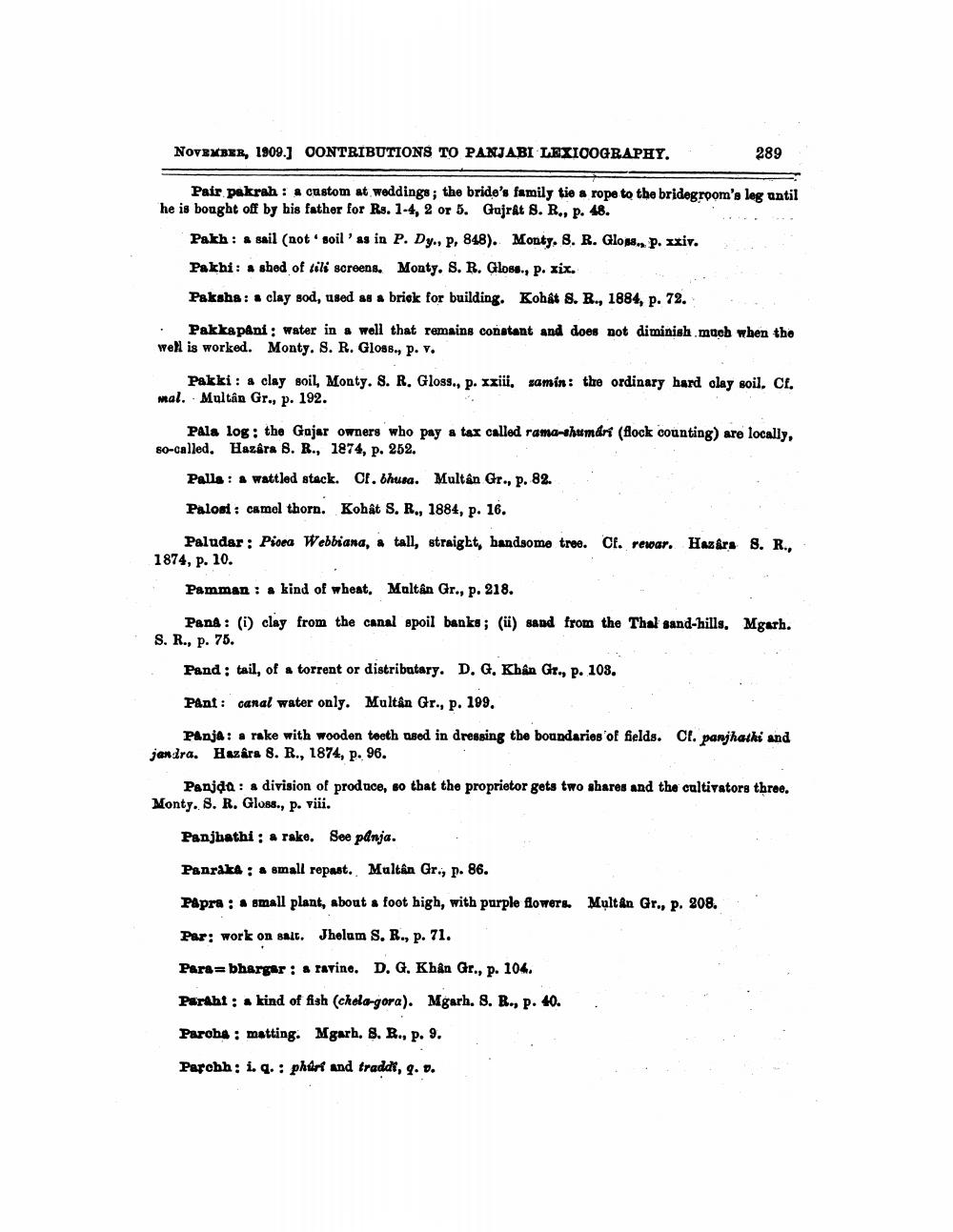________________
NOVEMBER, 1909.) OONTRIBUTIONS TO PANJABI LEXIOOGRAPHY.
289
Pair pakrah : a custom at weddings; the bride's family tie a rope to the bridegroom's leg until he is bought off by his father for Rs. 1-4, 2 or 5. Gujrat 8. R., p. 48.
Pakh : sail (not soil as in P. Dy., p. 848). Monty. 8. R. Gloga.. . xxiv. Pakhi: a shed of tili screens. Monty. S. R. Gloss., p. xix. Paksha: 2 clay sod, used as a brick for building. Kohát S. R., 1884, p. 72.
Pakkapâni : water in a well that remains constant and does not diminish moeb when tho well is worked. Monty. S. R. Gloss., p. v.
Pakki: a clay soil, Monty. 8. R. Gloss., p. xxiii, samin: the ordinary hard olay soil. Cf. mal. Multân Gr., p. 192.
Pala log: the Gajar owners who pay a tax called rama-thumdrt (flock counting) are locally, 80-called. Hazara 8. B., 1874, p. 252.
Palls : 1 wattled stack. Cr. bhusa. Multân Gr., p. 82. Palost: camel thorn. Kohat S. R., 1884, p. 16.
Paludar: Piova Webbiana, a tall, straight, bandsome tree. Cf. rewar. Hazara 8. R. 1874, p. 10.
Pamman : kind of wheat. Maltân Gr., p. 218.
Pana: (i) clay from the canal spoil banks; (ü) sand from the Thal sand-hills. Mgarh. S. R., p. 75.
Pand: twil, of a torrent or distributary. D. G. Khan Gr., p. 108. Pant: canal water only. Multan Gr., p. 199.
Panja: . rake with wooden teeth used in dressing the boundaries of fields. Cl. panjhatki and jandra. Hazara 8. R., 1874, p. 96.
Panjda: a division of produce, so that the proprietor gets two shares and the cultivators three. Monty. S. R. Gloss., p. viii.
Panjhathi : * rake. See panja.
Panraka : a small repast. Multan Gr., p. 86. Papra : a small plant, about a foot high, with purple flowers. Multán Gr., p. 208. Par: work on salt. Jhelum S. R., p. 71. Para=bharger : & ravino. D. G. Khan Gr., p. 104. Paraht ; * kind of fish (chola-gora). Mgarh. 8. B., p. 40. Paroha : matting. Mgarh. 8. R., p. 9. Parcbh: 1.q. : phui and traddi, 2.0.




